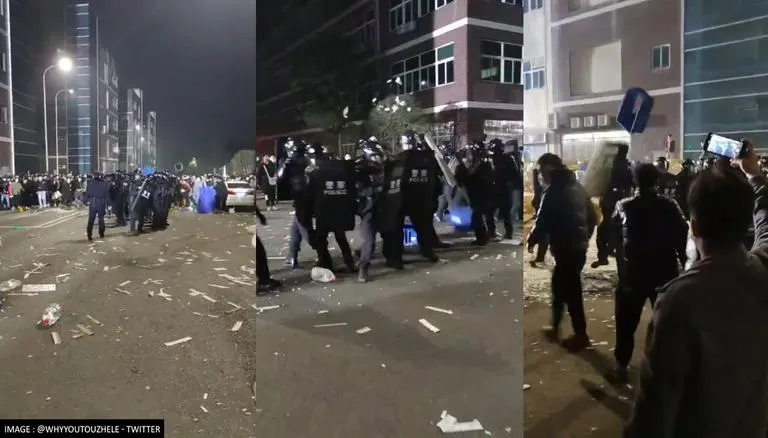Clashes broke out in the Chinese city of Chongqing on Saturday as workers tussled with the police briefly after the announcements of mass layoffs, BBC reported. The clashes were mainly centered around a COVID test kit factory of Zybio, a Chinese medical company specializing in in-vitro diagnostic reagents and equipment.
Videos surfacing on social media show hundreds of workers gathered, with boxes of antigen test kits scattered all around. One video shows employees yelling “Give us our money back!,” while others display protesters hurling crates, traffic cones, and chairs at the police.
“It is only right and proper that you need to pay money back if you owe others, this is the road of demanding unpaid salary,” reads the caption of one video. As per videos shared online, the protests sparked on the morning of Saturday after workers were sacked and informed that their salaries would not be in accordance with the amount they were promised.
The protests against working conditions and layoffs come shortly after China scrapped its long-running zero-COVID policy following the nationwide demonstrations in November that demanded the Chinese government to ease restrictions and even urged President Xi Jinping to step down.
November’s Foxconn protests
Earlier in November, a similar protest erupted in the Chinese city of Zhengzhou due to a pay dispute concerning workers at Foxconn Technology Group. Foxconn, which assembles mobile phones, witnessed thousands of its workers quit after receiving complaints about unfair working conditions.
According to the Associated Press, protesters complained that the company required them to perform extra work in order to be eligible to receive higher salaries promised by employers. Issuing an apology and citing a “technical error” as a reason for the dispute, the company said, “We apologize for an input error in the computer system and guarantee that the actual pay is the same as agreed and the official recruitment posters.” It also promised to “try its best to actively solve the concerns and reasonable demands of employees.”

